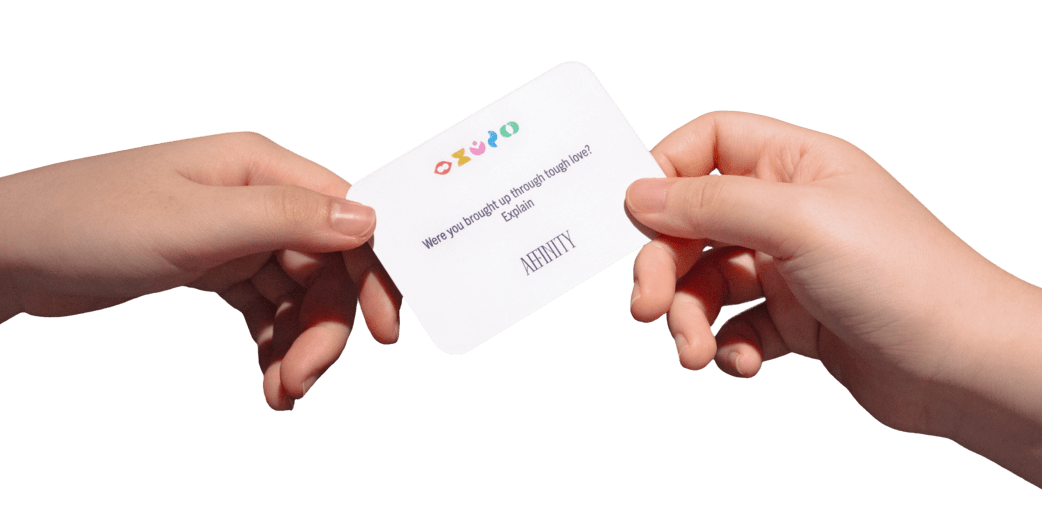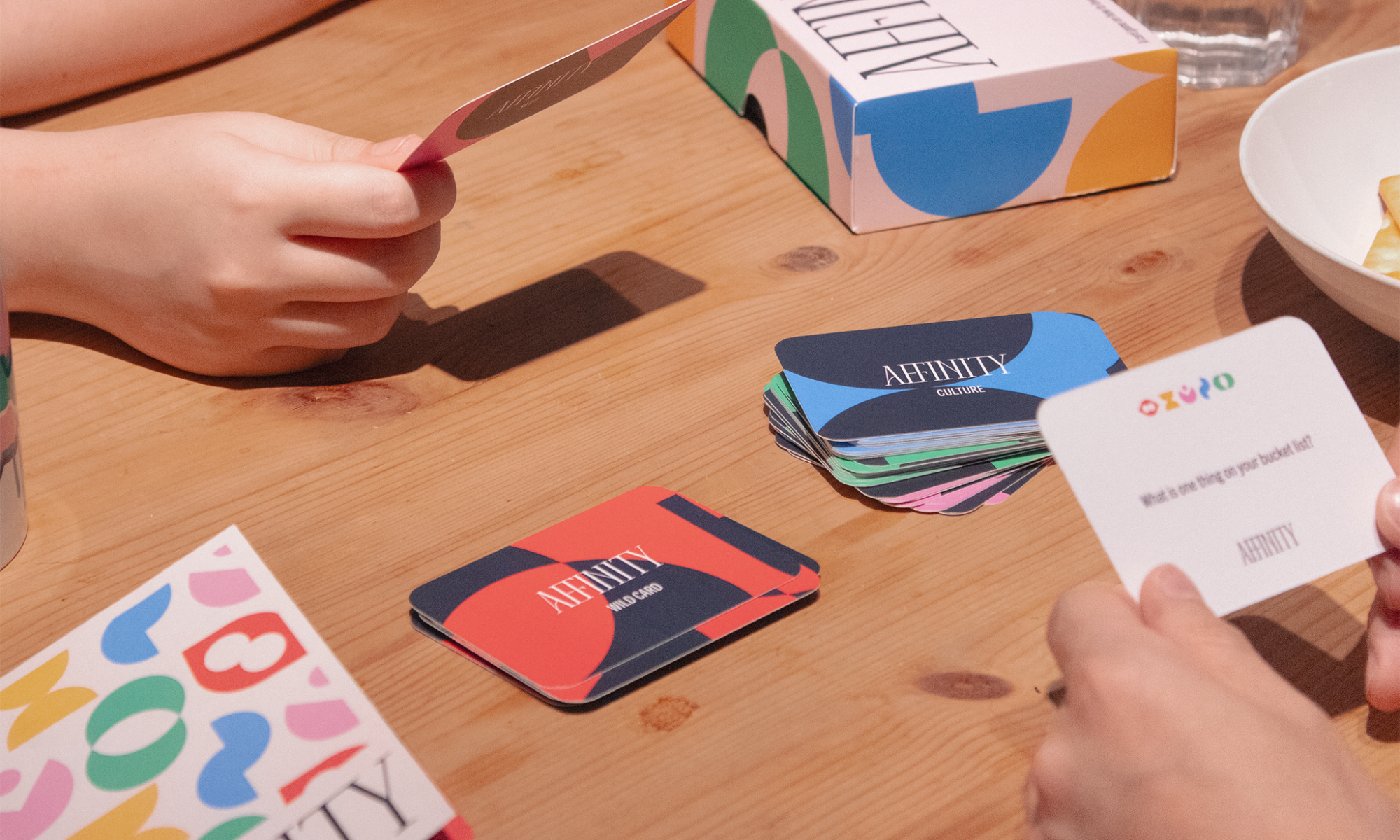Affinity is a cooperative card game I designed for my final year project at Taylor’s University, that encourages players to initiate meaningful conversations with their loved ones about the concept of Love Language
There are 5 main Love Languages that describe the ways people receive and express love in a relationship: Words of Affirmation, Quality Time, Physical Touch, Acts of Service, and Gifts. In other words, Love Languages teach us how to love and how we want to be loved.
For the design of this game, I wanted to achieve a clean and visually appealing look while also combining it with inviting and vibrant colours. I represented each of the five Love Languages as symbols as shown in the image below.
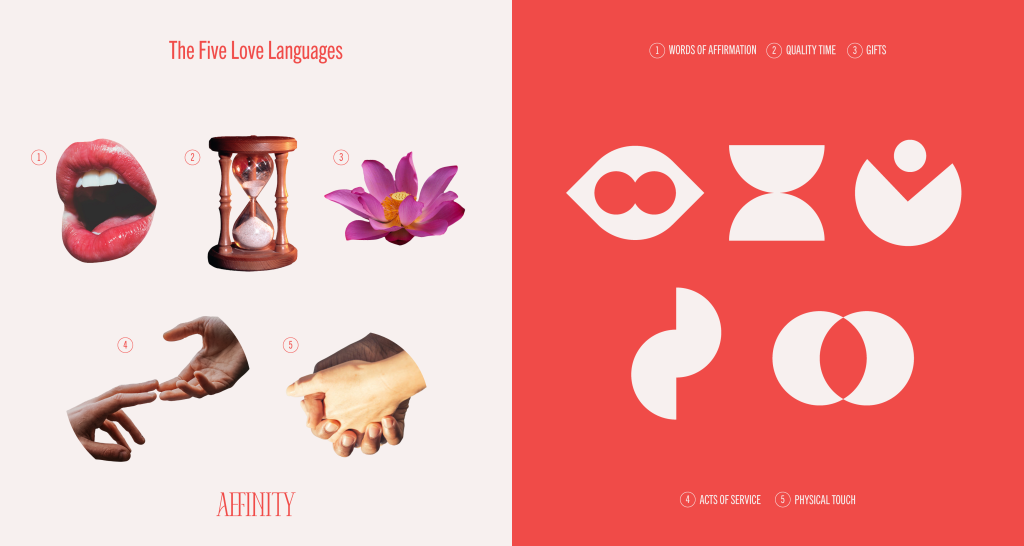
Within the card game packaging, players will find not only the cards but also a booklet, briefly introducing each Love Language. Unfolding the booklet will then reveal an infographic poster, describing a more comprehensive explanation of the Love Languages, as shown in the image below.
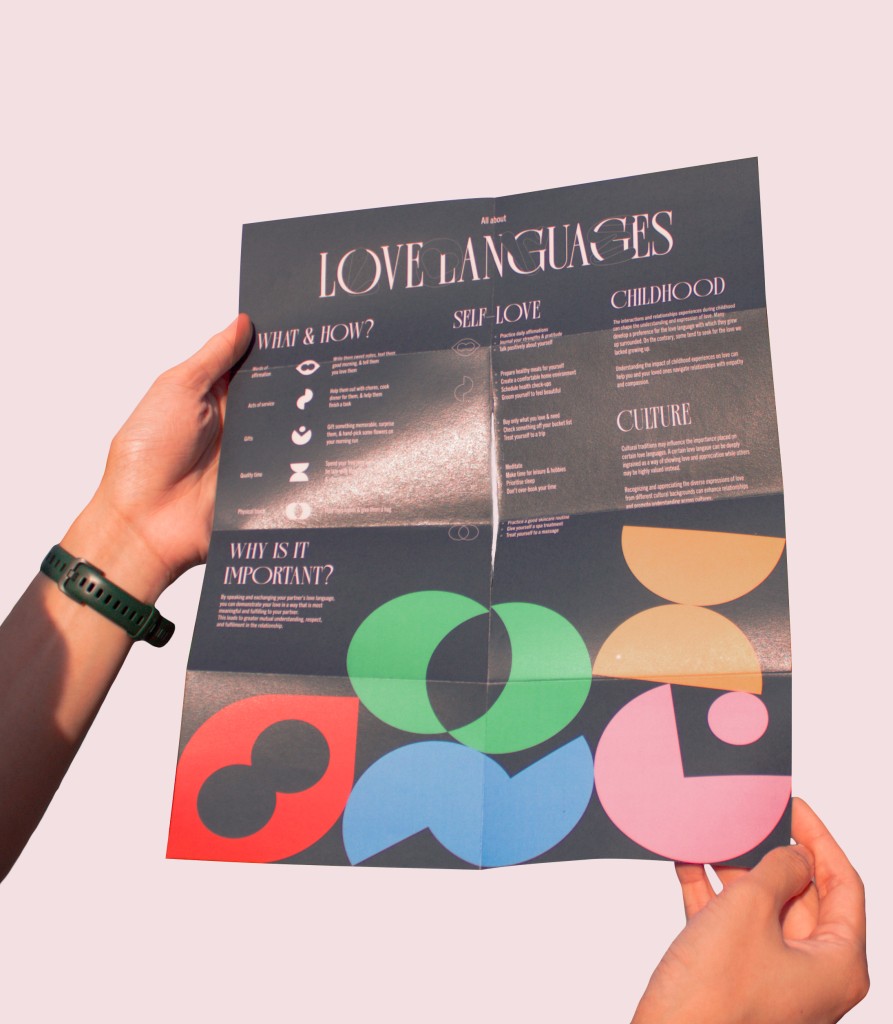
Having spent my previous semesters attending online classes, the experience of creating a tangible item, something I could actually touch and feel felt rewarding. Unlike before, where I had to rely solely on mockups, this time I had the opportunity to bring a real, physical product to life. Throughout the process, I was able to gain valuable insights into various aspects of packaging production, including dielines, colour settings, and paper materials used in the printing process. The hands-on experience taught me a great deal about translating digital designs into real-world products.
With this game, I aimed to create a space that ignites conversations about the diverse perceptions and expressions of love, not only between romantic partners but also among friends.
Before starting this project, I knew that I wanted to focus on The Five Love Languages. Through that initial research, I came to the conclusion that my project should encourage conversations and revolve around the impact of childhood, cultural, and self-experiences on an individual’s love language.
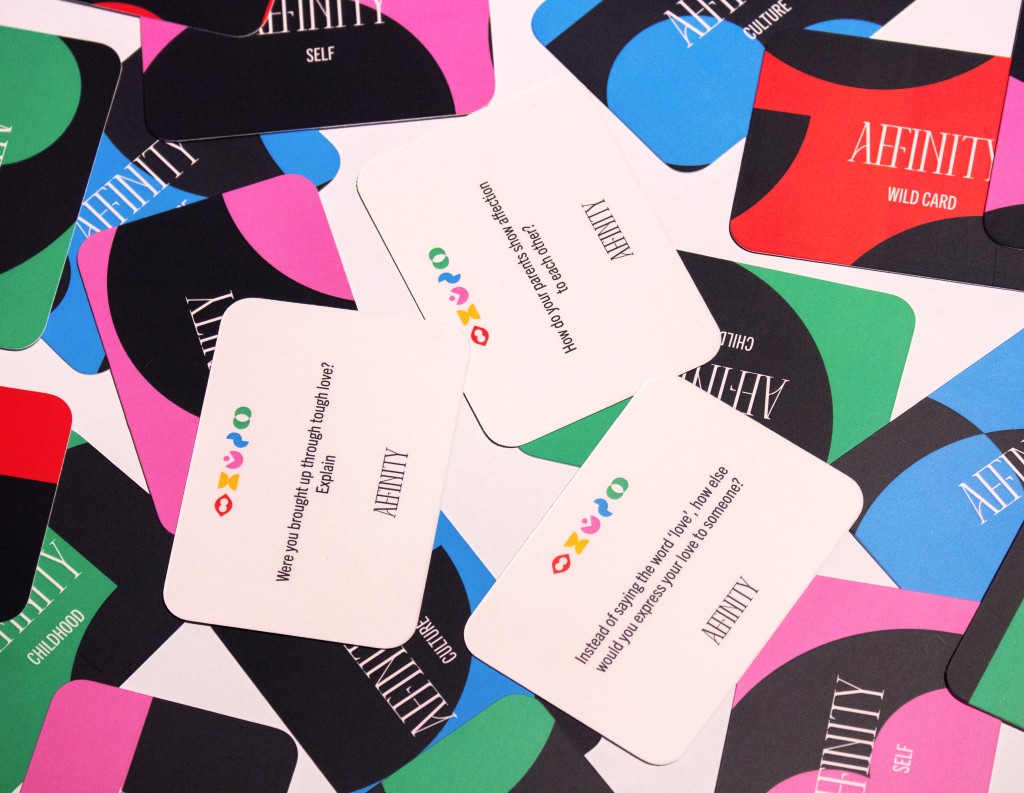
The Gameplay
I drew inspiration from a card game with a similar concept called We’re Not Really Strangers. This game serves as a conversation starter, encouraging players to delve into unconventional questions and openly share their thoughts to foster empathy and connection with one another.
Affinity consists of three stages. The first stage, called “childhood”, allows the player to explore how early experiences shaped their understanding of love. In the second stage, “culture,” the player can discuss the diverse aspects of their culture, highlighting both the differences and similarities that influence their perception of love. The final stage, “self,” invites them to express their personal definition of self-love and how it aligns with their preferred love language.
At the beginning of the game, each player receives wildcards of Insight, Pass & Ask Your Own Question. When a player draws the Insight card, the other player is encouraged to elaborate on the question they received. On the other hand, if a player draws the “Pass” card, they have the option to skip a question they don’t feel comfortable answering. The final card allows any player to ask their own question, giving everyone the opportunity to inquire about anything they wish.
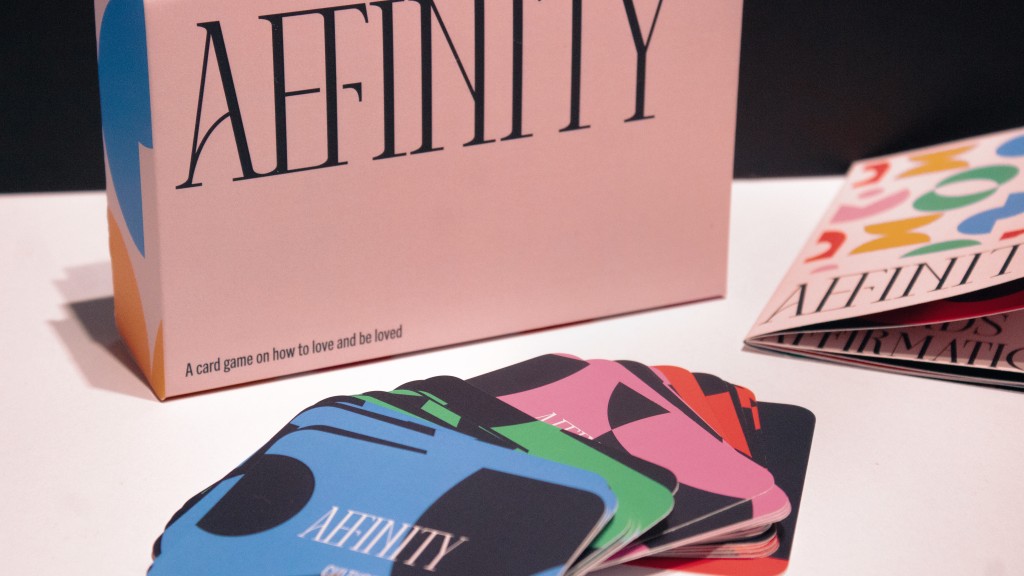
The Objectives
Affinity is a cooperative game, meaning there are no winners or losers. When I played this game with my friends, it felt more like a conversation than a game, which is what I love about it. The main goals of this game are to cultivate active listening skills, stimulate meaningful conversations, and foster empathy among participants.
I believe that by creating a space for shared experiences with our loved ones, it enables us to open up and connect on a deeper level in order to develop stronger bonds.